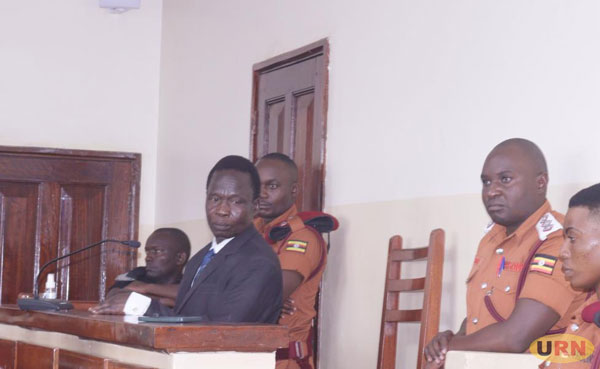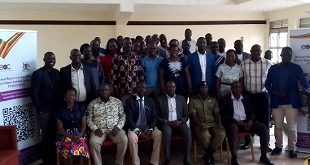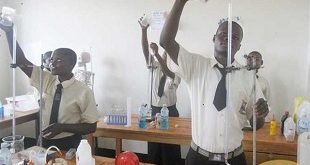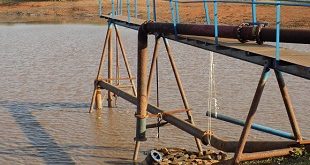
Gulu, Uganda | THE INDEPENDENT | Judges at the International Crimes Division of the High Court have rejected an application by the lawyers of the former Lord’s Resistance Army (LRA) rebel commander Thomas Kwoyelo seeking to question their client during his defence trial.
Kwoyelo’s defence Lawyer Caleb Alaka on Monday sought the powers of the court sitting at the Gulu High Court Circuit to allow the defence to intervene in guiding him as he puts up a defence against war crimes and crimes against humanity indictment.
The application was made shortly after Alaka told the four panel members of the justices of the ICD that their client had chosen the unsworn statement as his mode of defence in the trial.
“The accused was given options as it’s the practice on how he is going to give his defence. The accused intends to give an unsworn statement,” Alaka submitted.
Under the criminal trial, an unsworn statement is given without the obligation of an oath and a suspect who chooses it is not subjected to cross-examination.
Alaka however told the court that while the accused had chosen to present unsworn evidence, there was a need for the court to make exceptional adjustments to allow the defence to offer guidance due to the peculiar nature of the case.
Firstly, he reasoned that the case’s background spans more than a decade, while there are over 50 state witnesses’ evidence submitted in court that can’t all be recalled by the accused without being reminded.
Kwoyelo’s trial commenced in November 2018 and was initially indicted of 93 counts of war crimes and crimes against humanity charges allegedly committed between 1992 and 2005 in Kilak County, Present day Amuru District.
The court however in December 2023 dropped 15 charges and confirmed 78 others to which he was asked to put up a defence.
The ICD Deputy Registrar Harriet Harty Hatanga on Monday noted that Kwoyelo would present 15 witnesses in his defence in the ongoing trial.
According to Hatanga, the witnesses included Kwoyelo himself, former LRA fighters, expert witnesses and community members who believed in Kwoyelo’s innocence. She however said nine of the witnesses’ identities have been deducted for protection.
She noted that despite the challenges experienced in the past, the case has now reached an advanced level that awaits the closure of the defence presentation.
William Byansi, the State Prosecutor however during the court session objected to the application of the defence arguing that the move offends the rules of procedure in the trial and occasions prejudice to prosecution.
Byansi noted that it would be ideal for the court within the rules to remind the accused of the indictment and evidence but not the defence.
In a ruling, Justice Duncan Gaswaga noted that since the accused has asserted the rights against self-incrimination by opting to give an unsworn statement, he loses the right to the assistance of the counsel although he gains the advantage of not being cross-examined.
“In this scenario, the accused cannot have it both ways. The accused has chosen to make an unsworn statement; he is restricted from seeking to be guided or assisted by the defence counsel. this is the mandatory requirement of the law,” ruled Justice Gaswaga.
He noted that the court also found no merit in the defence’s argument on limited time, arguing that firstly, the defence seems to have looked at only the time the prosecution closed its case.
“Owing to the above, the court cannot invoke its inherent jurisdiction where there is an express provision of the law. In other words, rule 2 Sub-rule 3 and Rule 25 Sub-rule B are inapplicable in light of the express provision of section 73 of the Trial Indictment Act (TIA) regarding the mode of defence for an accused. For those reasons, this application is disallowed,” he ruled.
The court was consequently adjourned to Tuesday when Kwoyelo reappears before the court for the defence hearing.
****
URN
 The Independent Uganda: You get the Truth we Pay the Price
The Independent Uganda: You get the Truth we Pay the Price


